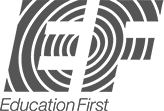Editor’s note: Due to the ongoing COVID-19 pandemic, we have made the difficult decision to postpone the field study component of this program until next year. Scholarship recipients have been given the option to defer their acceptance into the program and will be invited to participate in exclusive virtual programming designed in partnership with the Nobel Prize Museum this year.
Fueled by a common belief that in order to change the world you need to experience it, EF Study Abroad and The Forum on Education Abroad created a first-of-its-kind, high-impact student scholarship program, in collaboration with EF’s educational partner the Nobel Prize Museum.
During this fully-funded program, selected students will participate in an online project-based course, travel to Sweden for an international field study, and attend sessions at the 2021 Nobel Week Dialogue: a collaborative event that brings some of the world’s leading scientists, policymakers, and thinkers together to explore scientific topics through a global lens.
Future leaders from all over the world were invited to apply to this prestigious program. To be considered for selection, all students were asked to apply with a statement responding to the following prompt along with a letter of nomination from a faculty member or administrator familiar with the student’s academic work:
The future of humanity
Nobel Laureates have been recognized for their lifelong research and efforts that have saved lives, saturated humanity, protected the planet, and connected people – their efforts have been crucial to our world and our future.
Overarching Question: What is the next big effort that is crucial to the development of our world and future and how does this effort advance equity and justice?
Additional questions to consider:
What research and action is necessary?
How might you make a local impact on your campus, community, or beyond as it relates to equity, justice, and the greater development of our world and future?
What steps might you take and how might you implement your idea(s) to create sustainable change?
Consider the themes presented within the sustainable development goals as well as the Nobel Prize-winning ideas.
This scholarship program received an overwhelming response from highly qualified applicants, and we are thrilled to introduce you to the 11 incredible students who were selected as 2021 scholarship recipients. Continue reading to meet this year’s winners and read excerpts of their statements.
Meet this year’s scholarship recipients
Nancy Aguilar – Community College of Aurora
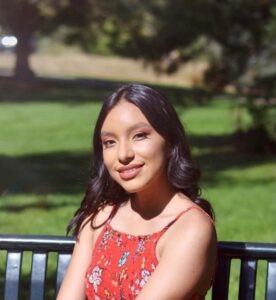
Statement excerpt: In order to contribute to the development of the world, one huge effort should be to provide broadband internet access (broadband) to every citizen of the world. Having this service allows everyone – not just the more privileged – to learn, to be creative, and to engage at the community level, which in turn and with time would lead to a more widespread engagement even on a global level. Broadband provides an onramp to the digital freeway – a service that is currently not accessible to the masses. Every player in this game of life already has unique and special talents that would blossom and thrive with this technology. Broadband would be beneficial to those isolated from modernization. Consequently, citizens across cultures would have a voice and hear others’ voices. Eliminating the digital divide is what will ultimately create equity and justice in the world. If everyone has broadband, the playing fields are leveled. This technology is like a door out of your home that takes you across the world, helps you to understand and hear others and develop skills that eventually will help the evolution of society and bring societies together to contribute to the development of the world.
Oseremhen Arheghan – The Ohio State University
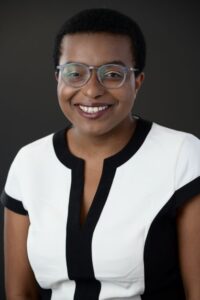
Statement excerpt: Currently, the UN’s gender equity efforts are fairly restricted to advocating for cis women and girls. Expanding those efforts to include trans folks is essential to advance equity and justice. Domestically, according to the National Center for Transgender Equality, more than one in four trans people have faced a bias-driven assault, and rates are higher for trans women and trans people of color. As a proud member of the LGBTQ community, my passion for foreign affairs and my own immigrant family background led me to begin researching what life is like for LGBTQ people abroad. As I began to grow into my own identity as a queer Nigerian, I realized even more why policy and human rights are so intertwined. Understanding the impacts British imperialism had on the formation of Nigeria and the politics of the country as it is today has expanded my own interest in foreign affairs and diplomacy. This was most recently evidenced by the personal accounts from LGBTQ Nigerians regarding their interactions with police and the Nigerian Special Anti-Robbery Squad (SARS). Like with SARS, many countries have legislation and bodies that aid in the discrimination of their transgender and gender-nonconforming citizens. Expanding international gender advocacy efforts to include trans individuals will create a more just and equitable society where folks have the ability to thrive as their true selves.
Simone Bryant – Benedict University
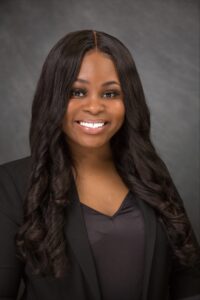
Statement excerpt: In recent years the global pandemic has brought enlightenment to deeply rooted and longstanding issues that we still face in present times. Across the world racial inequity, discrimination, and systemic injustice in all forms have come to the light. These issues must be addressed and solved. Though this will come with extensive hard work, I believe that the next big effort that is crucial to the development of our world and future is a coalition whose focus is to work actively to repair the relationships between countries worldwide and fight for racial equity and social justice. This means finding major ways to address crises worldwide such as racial discrimination, police brutality, systemic injustice, and in the most extreme cases even genocides. Issues of this gravity will not be easy to tackle, however, they are not impossible and are essential for the productivity of the civilization of our world. This effort will require an undying level of commitment to unifying our countries, collaborating on the central issues that we all face, designating adequate funding to correct these obstacles, and most importantly holding our leaders accountable to making the changes needed to make our world a better place.
Sean (Aaron) Dixon – Gallaudet University
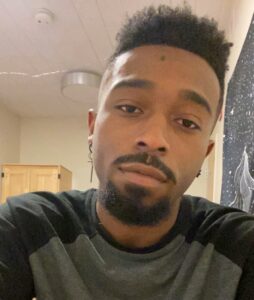
Statement excerpt: In a world where money makes the world go round, the implementation of universal basic income (UBI) is pivotal to global equity and human development. As a poor black kid from DC, universal basic income is important to me as a means of escaping poverty which in turn confines my world to the routes of Metro buses. However, UBI is valuable beyond its monetary value. I have invested myself tirelessly in my studies to become the accomplished scholar I am today, not only to earn more but improve upon who I become. In the same way, UBI is an investment; it eases financial stress, allowing people more time to live fulfilling lives, develop their potential, and give back to the world. My project will aim to wake world leaders up to this ongoing crisis of unfulfilled human potential. I will do this by starting a Twitter thread where people from all around the world will share their unfulfilled dreams and how UBI would help realize them, and subsequently, their potential. This is my first step of many in making the world a better place.
Trevor Marimbire – Earlham College
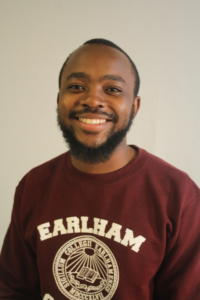
Statement excerpt: Sustainable, effective, and affordable urban management should be the next big effort towards developing our world. According to the world migration data portal, 60% of the world’s population will be living in cities by 2030. Cities are dynamic environments that are the hub of opportunity and upward mobility due to job and educational opportunities. However, cities have also been Petri dishes of economic inequality, gender-based violence, severe environmental degradation, food insecurity, and health disparities. These problems also occur in rural areas, but cities concentrate opportunities and disparities, making them more visible and putting social structures on display. Effective city management will provide overlapping solutions for the aforementioned global issues. For example, a new affordable and accessible public transport system that uses renewable energy tackles: (i) environmental degradation (ii) economic inequality (increased access to jobs and educational opportunities). High urban growth leads to increased poverty, because of the government’s inability to provide enough resources for the population. Sustainable, effective, and affordable urban management advances issues of equity and justice because any social justice issue disproportionately affects BIPOC, one example is environmental racism. Socioeconomic development at the level of the city provides the opportunity to focus on how we can cooperate across differences and build a diverse society.
Star Okolie – University of Tulsa
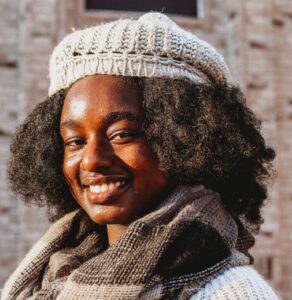 Statement excerpt: Empathy is one of the most important elements in the advancement of equity and justice. Crucial to the development of our world is the ability to work together for the common good. As COVID-19 has continued to ravage the world and vaccines are yet to be entirely accessible to many nations, especially those in the Global South, our fight against COVID-19 is yet to be over. The development of our world and future depends on the ability to expand resources for important scientific advancements around the world.
Statement excerpt: Empathy is one of the most important elements in the advancement of equity and justice. Crucial to the development of our world is the ability to work together for the common good. As COVID-19 has continued to ravage the world and vaccines are yet to be entirely accessible to many nations, especially those in the Global South, our fight against COVID-19 is yet to be over. The development of our world and future depends on the ability to expand resources for important scientific advancements around the world.
By understanding how COVID-19 affects the metabolism of the cell to incur infection, we can better understand the methods of infection and possible treatment. My project serves to determine possible components of tobacco products and herbal supplements that affect cellular metabolism in aggressive cancer cells. Applying the ability for aggressive cancer cells to switch metabolic pathways based on energy sources in the environment, this research project will allow us to ascertain the effect of certain compounds on metabolism; this knowledge can help in the development of more selective treatments for cancer and even COVID-19. As we have become a more globalized world, a pandemic is something we must prepare for and tackle together.
Melika Osareh – University of North Carolina Greensboro
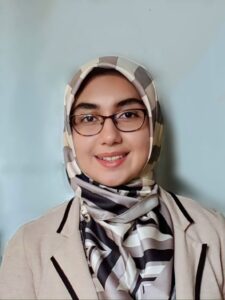
Statement excerpt: We have come a long way in science and technology and promoting equality in parts of the world, but many nations remain barred from access to quality education and learning opportunities such as researching abroad. Just recently, an undergraduate friend of mine with incredible academic potential was denied the opportunity to partake in novel research in the U.S. simply because she lived in a sanctioned country. Through the years I have worked in the NASA-funded space biology lab at my University, I can attest that our research has only increased in quality through collaboration with international researchers. Similarly, the COVID-19 pandemic showed us that through collaboration, we can develop vaccines in less than a year and save lives. Our health, economy, and future depend on research, and research depends on interdisciplinary and international collaboration. But this cannot happen without equal access to knowledge and educational opportunities. Since 2018, I have been involved with my local branch of the American Association of University Women where I mentor and encourage young minority women and girls to broaden their scope of knowledge through partaking in research opportunities near and far. I propose that we focus on such activities by providing guidance to youths and senior researchers to promote international collaboration and educational access for all. Only then can we break the boundaries that bar our growth as a society.
Emma Peterson – Lindsey Wilson College

Statement excerpt: I hold onto the opinion that humankind is able to achieve justice and equity if we set aside our own superiority in favor of empathy, compassion, and an ear to hear. Humankind already has the means to success. There is technology to assist in providing clean water to those who can’t access it. There is enough food grown on the planet to provide for everyone, and yet the inadequate allocation of resources leaves 821-million people hungry. There is enough wealth to provide if only we begin to systematically transfer wealth from the rich to the poor. There is only one solution that can overcome all our differences: The development that is necessary for the future of our world is normalizing empathy. Encouraging curiosity to hear about different cultures and upbringings. Teach everyone to listen before we speak. While global issues may seem impossible, it can be the simple task of entering a conversation wanting to hear what another has to say that can inspire peace, emphasize growth, and idealize overcoming differences and seeing others as, above all, people who have a right to food, water, safety, education, equity, and justice.
Kei Takahashi – Juniata University
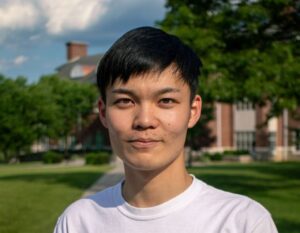
Statement excerpt: Universal Basic Income (UBI) is the only way to prevent widespread political violence. It is the most effective way to advance equity and justice. Almost every social problem is the result of economic injustices; institutional racism and sexism shape income disparity that disproportionately affects women and people of color. UBI will correct income inequalities enough to ensure that everyone has basic economic opportunities. UBI is a way to amend politically polarized societies that are the result of educational inequalities by enabling people in poverty to continue their education. UBI combines the advantages of socialism and capitalism. UBI is the only program that can terminate the vicious cycle that produces poverty by financially raising the standard of people’s lives. UBI can also activate the market economy by improving people’s purchasing power, which promotes more innovations. Protecting people’s individual liberty by assuring a basic income, UBI prevents the political violence that arises from social injustices. A stable economy that balances equality and freedom will change the modern world into a place where everyone can feel secure and have a chance to achieve their dreams.
Marcela Tarazona – Pontificia Universidad Católica del Perú
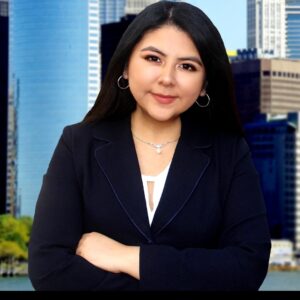
Statement excerpt: Some people have privileges and connections that help them achieve their goals. However, in Latin America and many other parts of the world, it’s hard for most people to study, find formal work, meet mentors who help them grow in their life and career and to have many other opportunities. This occurs because there is classism, social exclusion, racism, and a bad redistribution of wealth. For this reason, in order to reduce social exclusion, we need more spaces where people from different cultural and socioeconomic backgrounds could meet, see themselves as equals, and help each other. That’s why, my project is about creating a large community of people, from all over the world with different backgrounds, motivated by being life and career coaches, inspiring others, and helping them to expand their opportunities. These people will meet each other on a web platform, where an algorithm will match them to grow together and create a more equitable world. For example, a mentor from Silicon Valley could meet a mentee from Amazonas, Perú who wants to found a startup. That means that I will strive to promote connectivity and access to technology in rural areas in Latin America too.
Altamash Shaikh – University College Dublin
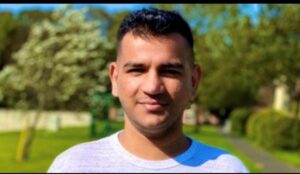
Statement excerpt: From my experience, I believe the inclusion of refugees/asylum seekers in society is an ongoing crucial development for our society. I feel the people seeking protection are ostracized and kept away from the citizens of the country and this restricts their ability to engage in society. If asylum seekers are given unrestricted rights to work, allowed to drive, and live with dignity, I believe, this will enhance society as a whole. Support for higher education for asylum seekers as provided by Ireland enhances the progress of individuals and also advances the economy and society. Many countries have treated and continue to treat the asylum seekers inhumanely some going as far as to treat them like prisoners. With the Rohingya refugee crisis, Palestinians being relocated, and such instances in different parts of the world, people are displaced in millions. Having the means to tackle such instances in a humanitarian manner is the need of the hour. An inclusive society will certainly be equitable and just. Ireland aims to achieve that standard and has the most humanitarian laws with respect to refugees and also has voiced its opinion against Palestinian injustice. Such a forthcoming and revolutionary attitude is essential to make the world a global village where each human life matters. I believe I can contribute to and gain from the Nobel Scholarship experience because I have experienced direct provision firsthand. I have genuine real-life concerns that refugees face on a day-to-day basis that needs to be addressed. Furthermore, I am a first-generation student attending university. I aim to live in a better world and would like to make an impact on a larger scale and I feel this opportunity gives me that platform. In the first year of college, I completed 70+ hours of volunteering on different projects. I am also a religious minority in Ireland and in my own homeland. I also feel that learning about leadership and multicultural exposure will also facilitate where I want to see myself in a few years. Therefore, I believe, I would be a perfect addition to the limited number of students selected for this program.
Check out the program these students will be participating in here, and stay tuned for us to open up next year’s application in the coming months.
Read our other academic related blog posts here.

